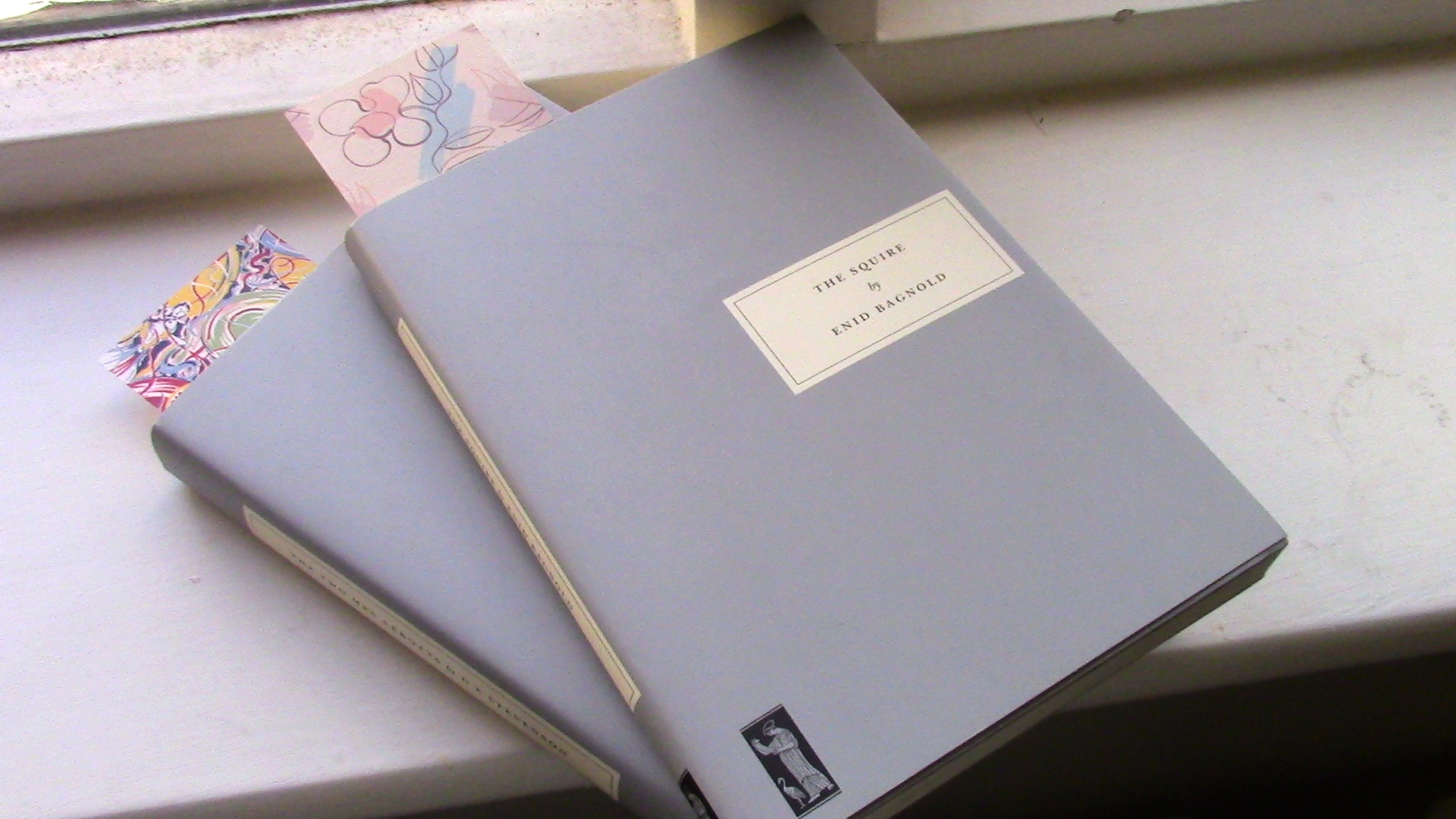1. Have I heard of the author? Who is she and what is her life story?
No, I haven't. The name didn't even sound familiar to me so I needed all the research I could do. And boy, did I find a lot.
First off, I found out that I really should have known Enid Bagnold, because she has written quite a few books. Here is her life in bullet points:
- Born on the 27th of October in 1889 in Rochester, Kent
- Grew up in Jamaica, Marburg, Germany, Paris and Lausanne.
- At 20, she moved to Chelsea to study drawing
- Was a nurse during World War I, but was fired when she wrote critically about the hospital - written about in A Diary Without Dates (1918 and her debut novel!)
- She then became a driver in France, which she wrote about in The Happy Foreigner (1920)
- Married in 1920 and lived in Brighton with her husband and four children! (the imagination of having number five inspired The Squire - 1938)
- She died in 1981
Now there's lots more to find out about Enid, but I just wanted a short summary so I knew where she came from and what time period she lived in. If you want to know more about her, you can read this amazing Telegraph article about her life.
2. What did this book teach me? (This could be about the time period, womanhood, daily struggles,...)
This book taught me a lot about motherhood and most importantly giving birth. The time period is the 1930s and there weren't any real ways to help women with birth. They just kinda had to push the baby out and only had a midwife to help them.
Added to that, the squire (who is never named) has four children and her husband is not home when she has the baby. Hence, why she's called the squire because she has to run the house. This is tough. She has help, she's a wealthy lady, but the help is extremely unreliable. Besides the midwife, who only stays for the birth and one week after, she has no one. So the two weeks we see of the squire's life are hard. Really hard.
This has taught me 1. that women are extremely strong and capable of dealing with whatever situation is thrown at them and 2. If I ever have a baby, I cannot complain about the birth. There's anaesthetics, good help and a safe hospital environment. It has to be a breeze compared to what the squire went through.
3. Is there a more famous book I could compare this book to?
I really can't think of another book to compare this too, because it's so specifically about the birth process and there are not a lot of books about that.
However, Margaret Drabble has said: 'Imagine To the Lighthouse written by Mrs Ramsay expecting her fifth child and you get something of the spirit of this intense and passionate novel.'
So I guess To The Lighthouse is the closest suggestion I can give.
4. Why does this book matter?
This book matters because, even in 2015, giving birth is kind of a taboo subject. We talk about how beautiful pregnancy is and how lovely newborns are, but the real process of giving birth is ignored by most authors. This is a subject that can only really be tackled by a woman and as a woman I found it refreshing to read about this natural part of many lives.
5. Are there men in the book and what is their role?
So basically, there are no men in this book besides the squire's two sons - who are little boys. We are told that the squire asked her husband to leave a few weeks before the birth so the house would be calmer and the birth process would be easier for her. This indicates that the husband is probably not very useful.
There is a butler who walks around, but he is very weary of the whole process. He likes children, there is a heartwarming moment where he sees the baby, but the whole process of birth is weird to him and he tries to avoid the squire and midwife as much as possible.
So what is the role of men? I guess to stay out of the way during the birth.
Conclusion
I think this book is really quite a peculiar read. If you want to know more about Enid Bagnold, then don't read it. You really find out very little about the Squire and more about the process of a rich woman giving birth a baby. It's somehow all very impersonal and distant, yet close enough that you keep reading and want to find out what happens.
This definitely wasn't my favourite book - besides the baby being born not a whole lot happens - but it is one of the most interesting books I've read. If you are pregnant of thinking about starting a family or have had children before, this book might just be perfect for you. For me, young and childless, there just wasn't much to relate to and it didn't teach me enough to make a great impression on me.

